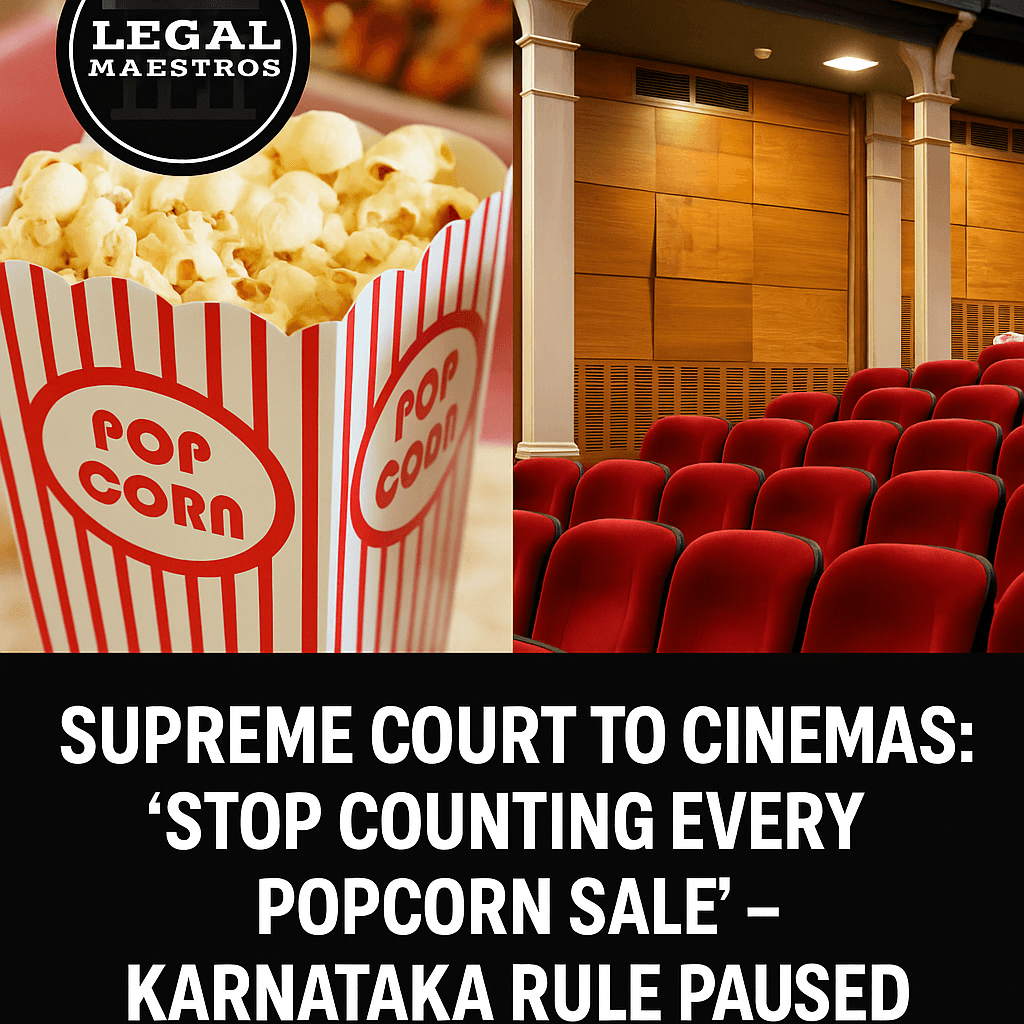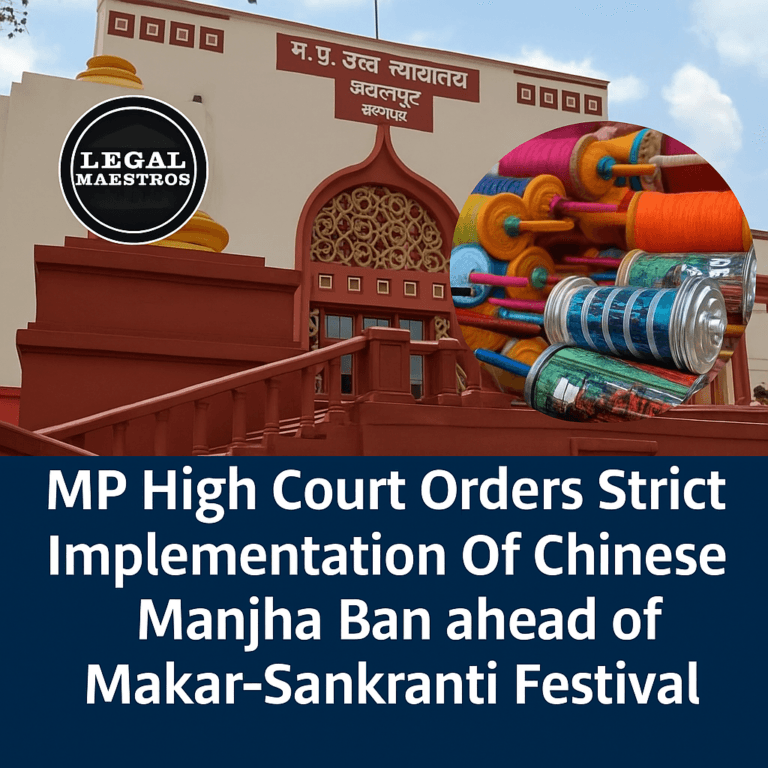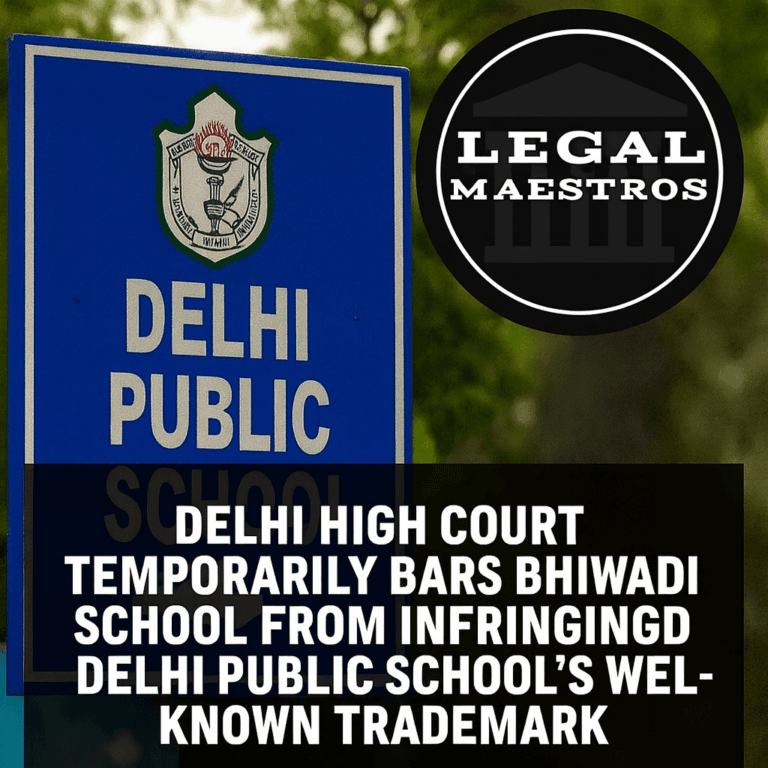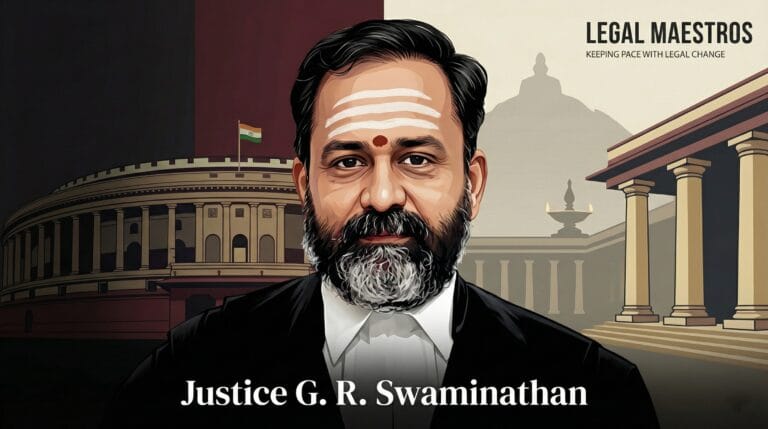
Supreme Court to Cinemas: “Stop Counting Every Popcorn Sale” – Karnataka Rule Paused
Karnataka Rule: Supreme Court Stops Unworkable Rule.
The Supreme Court of India has intervened to stay a controversial order by the Karnataka High Court, which had put forward a record-keeping burden on multiplexes (imposed as record demands) that was unworkable). The origins of this legal wrangle are based on the effort by the government of Karnataka to regulate all the prices of movie tickets to 200 rupees. Although the Supreme Court did not invalidate the price cap but offered prompt relief to the cinema owners by staying off the impractical conditions.
When considering the price cap of 200 rupees that the High Court bench was examining, the case was further adjudicated in the highest court of the country, where the multiplex was ordered to have a complete and auditable account of all individual ticket sales. This incorporated monitoring of buyer ID card transaction details of cash handling and obtaining cash register countersigned daily. Multiplex Association of India claimed that this was an unrealistic request in the era of internet booking.
Justice Vikram Nath and Justice Sandeep Mehta who sat on the Supreme Court bench agreed that these conditions were too heavy. The Supreme Court by leaving the order of the High Court has essentially instructed the state to cease this high-grade micro-management. The catchphrase that is in the headline, Stop Counting Every Popcorn Sale, a metaphor of this judicial opposition to insane detailed monitoring of every customer sale.
For any queries or to publish an article or post or advertisement on our platform, do call at +91 6377460764 or email us at contact@legalmaestros.com.
This decision is a send-on but essential victory to the cinema proprietors who held that the High Court direction was impractically challenging. Mukul Rohatgi, a senior advocate representing the multiplexes, pointed out the ridiculousness of the rule, asking of the rule, who carries an ID card to purchase a ticket? This ruling by the Supreme Court to stay this rule will still stand until the bigger case concerning the 200-rupee price cap is heard.
🍿 A Matter of Choice vs. 700 Coffee.
As part of the hearing, the Supreme Court bench did not confine itself to only the sale of tickets. The judges were highly spoken on oral issues regarding the excessive prices charged on food and alcoholic drinks that are sold within multiplexes. As pointed out by Justice Vikram Nath, the prices were too high: “You are charging 100 Rupees on a water bottle, 700 Rupees on coffee.
The cinema owners were being cautioned by the bench that such high prices were a driving factor that could make audiences away. As it stands, the movie theater is deteriorating. Make it more reasonable that people should come and have fun, otherwise the halls will not be filled, or so Justice Nath remarked. This assertion emphasized the perception of the court that the industry is also having its own pricing mechanisms which may be bringing down the industry.
As a reaction, the lawyer of the multiplex association claimed that this was a voluntary issue. He equated the multiplex to a five-star hotel in which he said, Taj will charge you 1,000 rupees to have a cup of coffee, can you repair it? The attorney argued that the customers are not coerced to purchase the meal and that they are paying a high-end experience, which is a business decision.
This encounter shows a fundamental conflict between the right of the cinema owners to charge on their own property and the free access of the citizens to enjoyment of movies. Although the Supreme Court has already made a decision, in another case in 2023, that cinema halls have the right to prevent external food, this new hearing indicates that the court remains extremely anxious about the equilibrium and ethical soundness of the pricing model of the industry.
The Unworkable Rule That Was Suspended.
The particular regulation that the Supreme Court stayed was not the 200-rupee ticket limit. Instead it was the conditions that the Karnataka High Court had made to its stay on that cap. One judge had initially suspended the 200-rupee price rule. By the time this was appealed, a divided bench had maintained the stay but had new and unworkable conditions on the multiplexes.
These requirements were literally a drastic audit requirement. Multiplexes were instructed to keep records of all the tickets issued meticulously and audibly. This contained the date, time, and method of booking and payment information. In case of cash they had to even gather the ID card details of the customer and keep them which the multiplex association referred to it as impossible to do that.
Additionally, the High Court had directed that the manager-in-charge had signature of cash registers per day. The above aim of these regulations was that in a case where the 200-rupee price ceiling is ultimately enforced, the multiplexes would have an impeccable track record of refunding the surplus value of each individual customer. The multiplex association counter-argued that this was not workable and in the real world was impractical.
The stay of these particular conditions by the Supreme Court consisted of understanding their practical ineffectiveness. The court basically concurred that the High Court had overstepped itself in its effort to develop the refund mechanism. This interim enables the multiplexes to keep on with their operations without this colossal administrative workload as the principal legal issue of the price cap is determined.
Forces: The Broader Battle Ticket Price Caps.
The legal battle is against the Karnataka Cinemas (Regulation) ( Amendment) Rules, 2025. This government rule by the state aims at ensuring that there is a price capping of all movie tickets to 200 rupees per ticket, in every cinema and in the whole state. The multiplex industry with large players has not spared this as infringement of their right to conduct business.
The owners of the cinemas claim that a price ceiling of one size fits all is arbitrary and it is unsustainable. They argue that there is no way a premium multiplex with recliner seats and high-tech sound can be compelled to set the same price as a single-screen theatre small town. They claim that the pricing should be dynamic and in accordance to the quality of the service, area, and demand.
The proponents of the cap such as the Karnataka Film Chamber of Commerce and the state government claim that the step is required in order to popularize cinema to everyone. They feel that multiplexes have been practicing exorbitant pricing which has practically locked out a significant segment of the population to share the communal culture of going to movies.
This is the main issue that was not determined in the new order of the Supreme Court. It merely postponed the inadmissible auditing rules. Nevertheless, the bench did conduct an oral finding that We are with the division bench that it should be 200, which indicated some understanding of sympathy to the price cap on the state.








